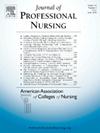Baccalaureate nursing students' perceptions of their stress and coping behaviors
IF 2.9
3区 医学
Q1 NURSING
引用次数: 0
Abstract
Background
Nursing students encounter stress throughout their academic career that impacts their emotional, physical, and psychological well-being, however, there is limited literature on specific coping behaviors and their effectiveness in managing high stress levels.
Purpose
The purpose of this research was to identify nursing students perceptions of stress and describe the effective or ineffective self-reported coping behaviors used while in a nursing program.
Methods
A descriptive cross-sectional study was conducted on a population of pre-licensure baccalaureate nursing students (N = 111) at a small university.
Results
Study results indicated that nursing students are moderately stressed with the junior class having the highest stress scores. Narrative responses provide insight into the contributing factors to stress and include themes of academic workload, finances, personal and relationship concerns, and lack of balance. The most used coping behavior was emotion-focused coping. Students reported that distractions were used to some degree of effectiveness but were short-lived.
Discussion
Stress is evident in nursing students in nursing programs, but a gap exists in identifying the effective behaviors students use to cope with stress. There are opportunities to screen students and provide continual reassessment and support through faculty, peers, and academic and financial resources.
本科护生压力感知及应对行为
护理专业的学生在整个学术生涯中都会遇到压力,这些压力会影响他们的情绪、身体和心理健康,然而,关于特定应对行为及其在管理高压力水平方面的有效性的文献有限。目的本研究的目的是确定护理学生对压力的感知,并描述在护理项目中使用的有效或无效的自我报告应对行为。方法采用描述性横断面研究方法,对一所小型大学护理学士学位预科生(N = 111)进行调查。结果研究结果显示护生的压力水平为中等,低年级的压力得分最高。叙述性回答提供了对造成压力的因素的洞察,包括学术工作量、财务状况、个人和关系问题以及缺乏平衡等主题。最常用的应对行为是情绪关注型应对。学生们报告说,分散注意力在某种程度上是有效的,但是短暂的。讨论压力在护理专业的护生中是明显的,但在确定学生用来应对压力的有效行为方面存在差距。有机会筛选学生,并通过教师、同伴、学术和财政资源提供持续的重新评估和支持。
本文章由计算机程序翻译,如有差异,请以英文原文为准。
求助全文
约1分钟内获得全文
求助全文
来源期刊
CiteScore
4.80
自引率
8.00%
发文量
153
审稿时长
52 days
期刊介绍:
The Journal will accept articles that focus on baccalaureate and higher degree nursing education, educational research, policy related to education, and education and practice partnerships. Reports of original work, research, reviews, insightful descriptions, and policy papers focusing on baccalaureate and graduate nursing education will be published.

 求助内容:
求助内容: 应助结果提醒方式:
应助结果提醒方式:


